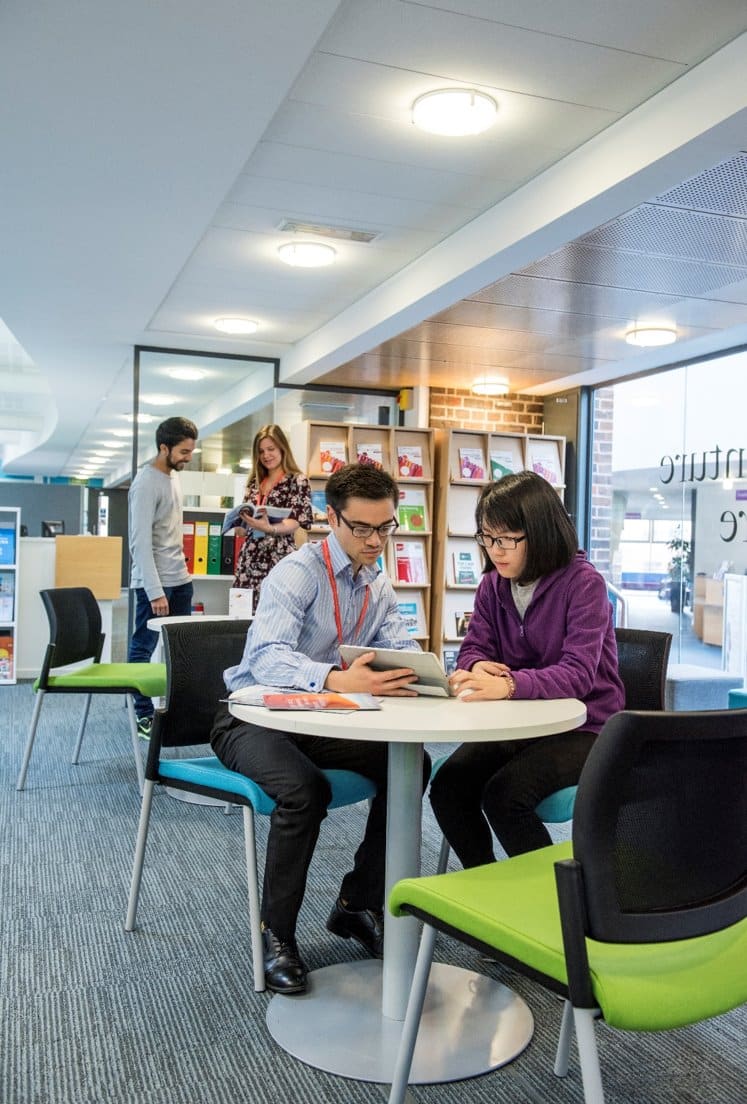Exploring the boundless realms of the universe: that’s the thrilling job of physicists. Making awe-inspiring discoveries is one of the many compelling reasons to pursue a degree in this science. You’ll also pick up some essential skills for your career and life, from critical thinking to problem-solving. The most exciting part is that the discipline is ever-evolving and adapting to the many technological advancements taking place today.
However, that does mean that your school of choice needs to keep up with the accelerating pace of breakthroughs. The University of Southampton is in the top 100 (QS World University Rankings 2024), and 59th globally and seventh in the UK for Physics and Astronomy (QS World University Rankings by Subject 2023). These accolades are made possible through the School’s determination to keep its curriculum and programmes up to date, and there are many to choose from.
From the general Physics (BSc) and Physics (MPhys) to the more specialised Dr. Richard Murray, an MPhys Physics and PhD Physics graduate, found that his degrees took him far. “I grew to deeply understand and apply the scientific method of breaking apart very complex problem, simplifying, and then finding solutions,” says the CEO and co-founder of ORCA Computing. “I apply this irrespective of whether it be a scientific, business or even personal problem.”

Dr. Richard Murray earned an MPhys Physics degree and a PhD Physics degree at Southampton. Source: University of Southampton
Southampton has flagship programmes, such as Physics with Year of Experimental Research (MPhys) and Physics with Industrial Placement (MPhys), suited for high-performing students. These four-year MPhys programmes allow you to pursue a pioneering research project in the UK or abroad or with a local industrial partner. Students can devote their final year to research at CERN in Switzerland or the Harvard-Smithsonian Centre for Astrophysics in Boston.
“I spent my placement at NKT Photonics, which gave me industry experience that will set me aside from other students and a valuable insight into how physics is used in industry,” says Connor Penfold, MPhys Physics with Industrial Placement student. Those interested in the astronomy courses can join the field trip to the Teide Observatory in Tenerife.
The newest addition to Southampton’s suite of programmes is Physics with Quantum Science and Technologies (MPhys). One of two such offerings in the UK, this degree combines physics with the emerging field of quantum science and technologies — placing students at the cutting edge of university and industrial research. Academics teaching this programme are specialists in quantum computing and information, quantum interactions of light and matter, Bose-Einstein condensation, lasers and photonics and nanoscience. They impart their insights in facilities such as clean rooms for fabrication at the atomic level.
What Southampton students gain beyond subject-level expertise are transferable skills. And with that, they become universal problem solvers and, upon graduation, can choose from a broad range of careers.
Success is within their reach, as the track record of graduates shows. Ninety-three percent of Physics and Astronomy graduates are either employed or in further study after 15 months of graduation, and 90% are in professional or managerial positions or graduate-level further study. “The best way to describe studying here would be to say it is engaging,” says Sai Pandian, BSc Physics graduate and currently Senior Data Scientist at John Lewis Partnership. “You never feel as though you have been left alone to learn something; lecturers and staff are always ready to support you and guide you in your studies.”

Sai Pandian graduated with a BSc in Physics and is currently a Senior Data Scientist at John Lewis Partnership. Source: University of Southampton
Diversity and equality are key tenets at Southampton. “Physics thrives on new ways of thinking, and including people from the most diverse backgrounds can drive this, building a welcoming, vibrant and exciting community where everyone can contribute,” says Professor Sebastian Hoenig, Head of Physics and Astronomy. For those who need more financial assistance, there are options like the Southampton Physics and Astronomy Achievement Scholarship — a 5,000-pound stipend scholarship (10 available, five based purely on merit and five for applicants who also meet the widening participation criteria) for new undergraduate students in physics or astronomy for the academic year beginning autumn 2024.
As Southampton is not a capital city, students here enjoy a lower cost of living than their peers in other top UK universities. The affordable living, coupled with up-to-date, research-forward master’s programmes, makes Southampton the ideal place to explore the universe through physics. After all, here is where students achieve the remarkable.
Explore physics programmes at the University of Southampton; click here to apply now.
Follow the University of Southampton on Facebook, Twitter, LinkedIn, Instagram and YouTube.












